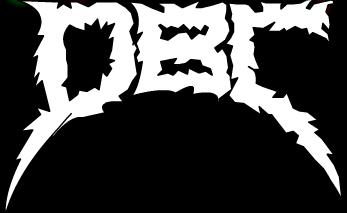Dead Brain Cells - Biography
Logo
1986-
Biography
1986 - Canadian thrash outfit Dead Brain Cells begins as a semi-serious side-project with drummer Jeff St. Louis and local personality Dave Javex from Vomit And The Zits. After only a few practices, the "joke" is coming up with some impressive material.
1987 - Combat Records releases 'Dead Brain Cells'. Produced by Randy Burns (Nuclear Assault, Ludichrist), the 13-song LP establishes Dead Brain Cells as a leading underground force. A solid thrash piece with socially conscious lyrics displaying an interesting hardcore inclination (especially in songs such as "Outburst" and "Lies", Dead Brain Cells elicits favorable reviews from Faces, Metal Hammer, Burn, and others. Several tracks hint at a promising, unconventional approach that bodes well for the future.
1989 - Universe, the fruition and sum of these elements, finally arrives. Nothing short of a full-blown concept work (replete with bibliography), Universe is Dead Brain Cells's exploration of the origin of the cosmos and its indigenous life forms, up to and including the future. Bassist/vocalist/lyricist Phil Dakin explains "It starts with 'The Genesis Explosion', which is about the origins of the universe through the formation of the solar system and so on. Each song is a chapter in this story, even the instrumental 'Exit The Giants' deals with the extinction of the dinosaurs. 'Rise Of Man' is self explanatory, while 'Threshold' is man's confrontation with the future and with what he has to do in order to survive".
In tackling these bold new territories, the members of Dead Brain Cells implemented a surprisingly innovative change of direction. Guitarists Gerry Ouellette and Eddie Shahini have refined their once Slayer-esque attack into a classically oriented approach, while the Dakin/ St. Louis rhythm section oversees these careful orchestrations with painstaking precision. The power of their 1987 debut remains, and is intensified at points by the radical new bent Dakin defines as"Brainmetal".
"We've really matured", Dakin concludes. "We've found our direction. It's not as hardcore as the first LP. We've learned to bring out moods by the way we put things together. The lyrics are more scientific, less sociological. You'd really have to hear it to understand."
Source: Facebook
1987 - Combat Records releases 'Dead Brain Cells'. Produced by Randy Burns (Nuclear Assault, Ludichrist), the 13-song LP establishes Dead Brain Cells as a leading underground force. A solid thrash piece with socially conscious lyrics displaying an interesting hardcore inclination (especially in songs such as "Outburst" and "Lies", Dead Brain Cells elicits favorable reviews from Faces, Metal Hammer, Burn, and others. Several tracks hint at a promising, unconventional approach that bodes well for the future.
1989 - Universe, the fruition and sum of these elements, finally arrives. Nothing short of a full-blown concept work (replete with bibliography), Universe is Dead Brain Cells's exploration of the origin of the cosmos and its indigenous life forms, up to and including the future. Bassist/vocalist/lyricist Phil Dakin explains "It starts with 'The Genesis Explosion', which is about the origins of the universe through the formation of the solar system and so on. Each song is a chapter in this story, even the instrumental 'Exit The Giants' deals with the extinction of the dinosaurs. 'Rise Of Man' is self explanatory, while 'Threshold' is man's confrontation with the future and with what he has to do in order to survive".
In tackling these bold new territories, the members of Dead Brain Cells implemented a surprisingly innovative change of direction. Guitarists Gerry Ouellette and Eddie Shahini have refined their once Slayer-esque attack into a classically oriented approach, while the Dakin/ St. Louis rhythm section oversees these careful orchestrations with painstaking precision. The power of their 1987 debut remains, and is intensified at points by the radical new bent Dakin defines as"Brainmetal".
"We've really matured", Dakin concludes. "We've found our direction. It's not as hardcore as the first LP. We've learned to bring out moods by the way we put things together. The lyrics are more scientific, less sociological. You'd really have to hear it to understand."
Source: Facebook




